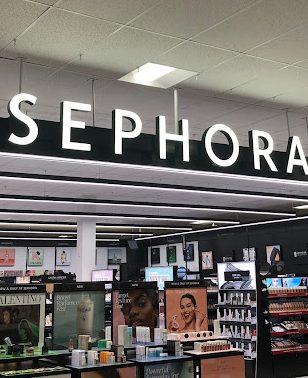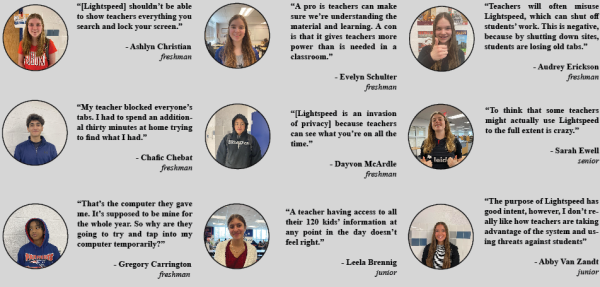Keep politics away from the hijab

Photo courtesy of Brendan Talbot
Last December, students walked out in support of Fairfax High School student Ekran Mohamed who had her headscarf taken off while assaulted by another student. Students stood in solidarity with the notion that a woman’s choice to wear hijab should never be met with violence.
Ongoing protests in Iran have sparked current conversations about the role of government in policing women’s attire. The choice of hijab, especially, should not be politicized.
“Hijab is a way to protect a woman’s beauty so that it’s not exposed to just anyone. Hijab forces people to look at a woman for who she is and not determine her worth based on the shape of her body or the beauty of her hair,” said junior Yasmin Bahiru, who is a hijabi.
In the West, the term hijab refers to a headscarf typically worn by Muslim women. Within Islam, however, the word has a broader meaning. The word hijab is directly translated from Arabic to English as barrier or partition, but its connotation encompasses principles of modesty through actions and appearances. Additionally, the entire concept of hijab must be accepted and practiced by a person willingly.
“Women should be free to wear or not wear hijab,” said senior Nihel Abadji, a Muslim who chooses not to wear a headscarf. “It is like any other practice in Islam or other religions.”
Worldwide, there is backlash against women for choosing to wear or not wear hijab. An Iranian woman named Mahsa Amini is said to have died due to abuse suffered while in police custody after she was arrested by Iran’s morality police for partly showing her hair in public. In Iran, all women are required to wear hijab while in public. Contrastly, European countries such as France ban religious symbols from schools, prohibiting Muslim women from wearing hijabs.
“France is making hijabi women’s lives difficult as these poor women are experiencing discrimination on a daily basis,” said Abadji. “This is just too much for them to handle, especially in schools and universities.”
Unfortunately, the ethnic and religious diversity of Northern Virginia does not prevent instances of Islamophobia. Though not systemic, ignorance regarding the hijab and religious wear remains an issue.
“My sophomore year of high school, there was a substitute teacher who thought it was against the school dress code for people to wear hijabs, so she told me to take it off. Because I was in shock, I had no idea what to say, but other students in the class explained to her that there’s no problem with wearing a headscarf,” said Bahiru.
Last year, Fairfax High School student Ekran Mohamed was assaulted by another student and had her hijab taken off. Discriminatory policies, prejudice, and violence are the realities that Muslim women often have to live with, whether they wear hijab or not. Nobody should have to suffer or die due to a personal choice.
“Whether you’re forcing her to cover up or dress down, they’re both forms of dictatorship,” said Bahiru.
Ultimately, wearing hijab is a personal choice between a person and their faith. No law, regulation, or morality police should hinder that.





